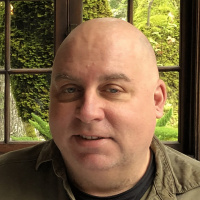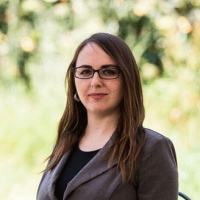
Jenni asks Matthew Owen, Scott Bauer, Liza Welsh, Eddie Morgan, William Tuttle…
HACHR/SEP
Please describe what actions you have taken/will take to improve support for evidence based harm reduction programs like HACHR in Eureka? Do you support the city’s recent action against HACHR? If so, please explain how exactly that action does anything to support community needs, and justify EPD spending 7 months on this? If you do not support the city’s recent action, what steps would you take to build apa strongerwstronger HACHR or a new SEP/harm reduction program?
— Jenni
Responses

Eddie Morgan
Thank you for your question, Jenni.
Needle exchange programs have a proven record of reducing harm and improving public health. In this respect, the work that HACHR has been doing is important. However, as a result of EPD’s investigation, it was determined that HACHR was acting beyond this purview—supplying materials for the smoking of illegal drugs and possibly supporting the sale and exchange of such drugs on the premises as well, with negative impact on the surrounding neighborhood. Efforts to improve the situation and reduce negative impacts on the community were unsuccessful, which led to the City’s decision not to support re-certification.
If sufficient improvements are not made to address the deficiencies of the HACHR program, I feel that an alternative needle-exchange agency/program should be sought. I would support a call for such action by the City Council.
(Note: For those interested, the city’s press release, which links to the letter and memorandum of opposition, can be found at the following link: https://ci.eureka.ca.gov/civica/press/display.asp?layout=1&Entry=2384.)
Matthew Owen
Jenni –
I’m all for harm reduction as it saves lives and saves money. While I’m against drug use, I do have compassion for those who are addicts. If they share needles they will be spreading diseases and ending up in our hospital with infections, Hepatitis and AIDS. Guess who’s paying their medical bills then?
While HACHR has some problem issues, I’ve personally spoken with the new Executive Director of HACHR and she assures me that they will be policing the grounds for any potential problem persons.
HACHR will also come out to your place of business to collect any used needles on the ground.
I would recommend putting HACHR on a probationary period to see if they can be good neighbors and work with the city.

Liza Welsh
I believe that harm reduction works. Not only does data demonstrate that it is effective for preventing the spread of blood borne diseases, harm reduction saves money by reducing hospital visits, and harm reduction clinics have the opportunity to serve as a bridge between people who use drugs and social service providers who can help them to access the support and services necessary to change their lives. Further, harm reduction is a compassionate approach and I believe in leading with compassion.
That said, I believe that there should be transparency and accountability from the providers of harm reduction services. It troubled me to hear that HACHR missed quarterly reports. However, HACHR is under new leadership. I have spoken with the current leader and sensed a sincerity in wanting to work with the City to identify solutions. One possible solution is to find a new location for HACHR or for the next SEP/harm reduction program so that the operations and clients of the program will not affect adjacent residential areas as much as they currently do.
Finally, in our discussions of HACHR and the EPD, we need to look at the greater social and legal context that is the War on Drugs. I believe that we should end the War on Drugs. It has been very costly and largely ineffective, and across the United States, it has proven to be a war on marginalized people, especially working class and black and brown people. Let’s stop spending money policing substance use and let’s instead invest in our communities! Instead of law enforcement officers, let’s send social workers out to interface with people who are suffering as a result of drug use, and let’s identify solutions that consider the whole person within their social context. When we address the underlying traumas with which people are grappling, and when we create access to jobs, healthcare, housing, and opportunities for community engagement, I suspect that many of our problems with addiction and substance use will diminish.
